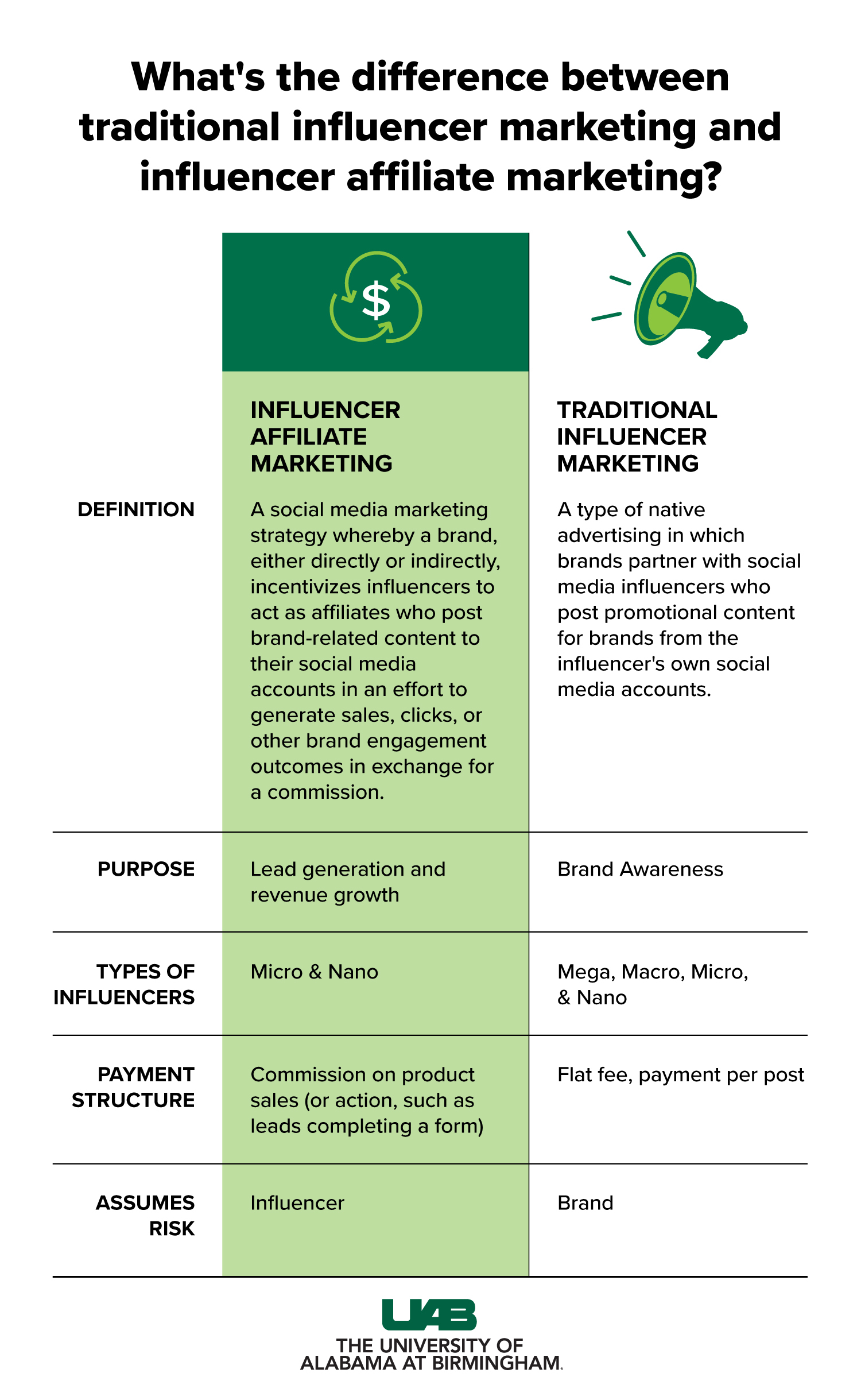 Parker Woodroof, Ph.D.
Parker Woodroof, Ph.D.
Photography by Lexi Coon New research from the University of Alabama at Birmingham Collat School of Business explores the impact of language on engagement with influencer affiliate marketing posts on social media.
The study, published in the Journal of Business Research, shares that traditionally major brands have embraced affiliate marketing programs; but the factors influencing engagement with influencer-generated content have remained largely unexplored. To bridge this gap, the research team applied the Elaboration Likelihood Model to investigate how the linguistic features of influencers’ affiliate marketing posts influence consumer behaviors. By employing text mining and natural language processing techniques, a vast data set of influencers’ affiliate marketing posts from Instagram was analyzed.
The study revealed that specific linguistic styles within these posts can enhance or diminish engagement with the content. Certain factors, like word count and analytical thinking, negatively impact engagement, while elements like clout, authenticity and positive emotion have a positive effect. These findings not only advance the understanding of influencer affiliate marketing and social media engagement but also offer crucial insights for both brands and influencers participating in affiliate marketing campaigns.
“Affiliate influencer marketing is a good example of a social media marketing strategy that is evolving before our eyes in real time,” said Assistant Professor of Marketing Parker Woodroof, Ph.D., lead author of the study. “We see various phenomena that barely existed five years ago, and now they’ve become mainstream overnight. Companies have to figure out what to do. That is what happened with influencer marketing in general, and now we see that the industry is maturing and dealing with new concerns around artificial intelligence, bots and fake followers, and brands are still trying to figure out how to utilize influencer marketing in order to drive value.”
The research conducted by Woodroof and the team provides valuable insights into the dynamics of influencer affiliate marketing. As the industry continues to witness a shift toward micro-influencers, who offer cost-effective and hyper-targeted campaigns, it becomes crucial for brands to comprehend audience interactions with this category of influencers. Micro-influencers could establish trust with their followers and offer authentic brand recommendations, making them an integral part of brand strategies. By leveraging affiliate programs, brands can mitigate risks and collaborate with micro-influencers effectively.
 “Affiliate influencers offer companies a lower-risk strategy to partner with influencers utilizing a commission-based pay formula rather than an upfront investment,” Woodroof said. “For smaller brands especially, utilizing affiliates may be the winning strategy moving forward.”
“Affiliate influencers offer companies a lower-risk strategy to partner with influencers utilizing a commission-based pay formula rather than an upfront investment,” Woodroof said. “For smaller brands especially, utilizing affiliates may be the winning strategy moving forward.”
This study represents a significant contribution to the field as it is the first to examine the impact of language cues on consumer engagement with influencer-generated affiliate marketing content. The unique nature of influencer affiliate marketing, situated at the intersection of social media marketing and traditional affiliate marketing, necessitates an in-depth exploration of its effects on marketing outcomes. The findings expand the existing body of research on social media engagement behaviors and provide crucial insights for marketers in utilizing language effectively to drive engagement.
As social media usage continues to grow, with consumers spending an average of almost 2.5 hours per day on these platforms and affiliate spending reaching billions of dollars, influencer affiliate marketing emerges as a viable strategy in the social media e-commerce landscape. This research serves as a significant contribution to understanding the dynamics of influencer affiliate marketing and its potential impact on marketing strategies.
Other contributing authors in this study include Holly A. Syrdal, Ph.D., and William C. McDowell of Texas State University; Susan Myers, Ph.D., of the University of Central Arkansas; and Sandipan Sen, Ph.D., of Southeast Missouri State University.